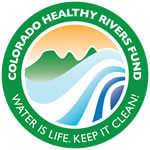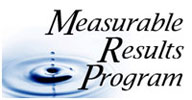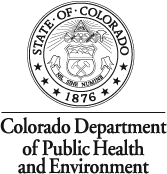As an engaged partner with the Nonpoint Source (NPS) Management Area of the Water Quality Control Division, the Assembly offers watershed planning services to local non-profit watershed groups to assist in the development and implementation of EPA certified watershed plans. Whether the citizen groups are working to develop new watershed plans, update an existing plan or begin the process of implementing an NPS project, services can include meeting facilitation; identification and compilation of local resources and stakeholders; location of funding opportunities; preparation assistance in contracting with the state; and the development of projects designed to reduce nonpoint source pollution.
Assembly staff will act as a circuit rider across the state to provide individual watershed planning services tailored to the needs of specific watershed groups. NPS projects are conducted on a voluntary basis, which generally requires an active and involved group of concerned citizens. The assembly’s contribution to Colorado’s NPS program will be to fill a niche by reaching targeted audiences in the watershed community, and providing qualified support to local organizations actively involved in restoring water quality.
Experience has shown that in order to effectively address NPS pollution issues in individual basins, the community needs to feel that their specific issues are being addressed – for example, the issues of headwater mining communities will not be the same as those of agricultural communities on the Eastern Plains.
For this reason, a personal support relationship is important to develop the appropriate partnerships that first build trust and understanding before being able to explain and develop a comprehensive watershed plan. The Assembly will use its information network and watershed planning experience to customize its approach to each community according to the specific needs of the individual watershed.
The goal of the project is to work in partnership with the state’s NPS program to prioritize watersheds and lead efforts to develop watershed plans that address the U.S. Environmental Protection Agency’s 9 Required Elements for all Section 319-funded plans. This will be accomplished by expanding collaborative efforts between the Assembly, the NPS program and citizen stakeholder groups through improved and focused outreach capabilities.
The intended outputs will be new and revised watershed plans, inclusion of Total Maximum Daily Loads (TMDLs) analysis results into watershed plans, implementation of project proposals and improved information dissemination to local watershed groups. The overall outcome will be completed implementation projects that address water quality impairments.
Creating a comprehensive Watershed Plan is integral to the watershed approach of natural resources management. Below you will find useful resources to help begin structuring a Plan unique to your watershed. The Colorado Watershed Assembly is always available to help local conservation organizations develop or improve upon existing Watershed Management Plans. Contact Us
We are currently assisting in the Chatfield Watershed Planning Process. For more information about the Chatfield Watershed Plan, click here.
Watershed Reports (in Colorado)
EPA Watershed Planning Website
Handbook for Developing Watershed Plans
EPA handbook for local organizations
Colorado Watershed Cookbook: Recipe for a Watershed Plan
Rural Fundraising Guide
Preliminary WSG Survey Draft.doc
Survey for watershed management Certification
Assembly staff will act as a circuit rider across the state to provide individual watershed planning services tailored to the needs of specific watershed groups. NPS projects are conducted on a voluntary basis, which generally requires an active and involved group of concerned citizens. The assembly’s contribution to Colorado’s NPS program will be to fill a niche by reaching targeted audiences in the watershed community, and providing qualified support to local organizations actively involved in restoring water quality.
Experience has shown that in order to effectively address NPS pollution issues in individual basins, the community needs to feel that their specific issues are being addressed – for example, the issues of headwater mining communities will not be the same as those of agricultural communities on the Eastern Plains.
For this reason, a personal support relationship is important to develop the appropriate partnerships that first build trust and understanding before being able to explain and develop a comprehensive watershed plan. The Assembly will use its information network and watershed planning experience to customize its approach to each community according to the specific needs of the individual watershed.
The goal of the project is to work in partnership with the state’s NPS program to prioritize watersheds and lead efforts to develop watershed plans that address the U.S. Environmental Protection Agency’s 9 Required Elements for all Section 319-funded plans. This will be accomplished by expanding collaborative efforts between the Assembly, the NPS program and citizen stakeholder groups through improved and focused outreach capabilities.
The intended outputs will be new and revised watershed plans, inclusion of Total Maximum Daily Loads (TMDLs) analysis results into watershed plans, implementation of project proposals and improved information dissemination to local watershed groups. The overall outcome will be completed implementation projects that address water quality impairments.
Creating a comprehensive Watershed Plan is integral to the watershed approach of natural resources management. Below you will find useful resources to help begin structuring a Plan unique to your watershed. The Colorado Watershed Assembly is always available to help local conservation organizations develop or improve upon existing Watershed Management Plans. Contact Us
We are currently assisting in the Chatfield Watershed Planning Process. For more information about the Chatfield Watershed Plan, click here.
Watershed Reports (in Colorado)
EPA Watershed Planning Website
Handbook for Developing Watershed Plans
EPA handbook for local organizations
Colorado Watershed Cookbook: Recipe for a Watershed Plan
Rural Fundraising Guide
Preliminary WSG Survey Draft.doc
Survey for watershed management Certification







